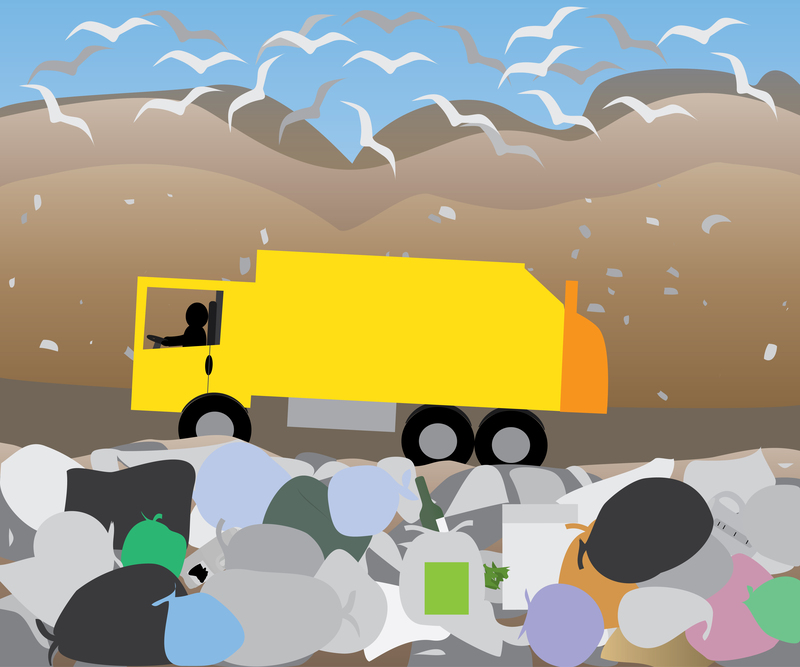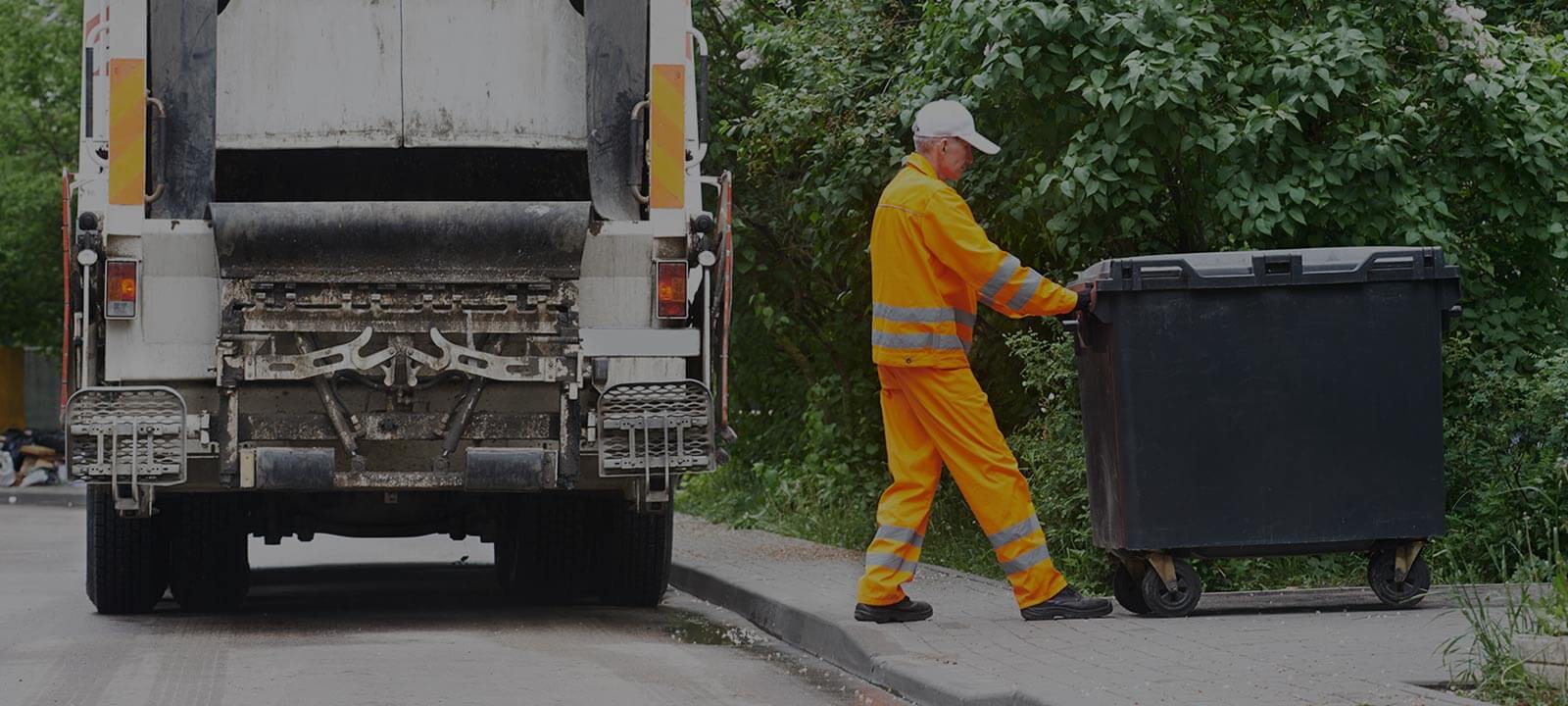Eco-Friendly Trash Handling for Pollution Control
Posted on 10/10/2025
Eco-Friendly Trash Handling for Pollution Control
The increasing rate of pollution is one of the pressing issues our planet is facing today. This pollution problem stems from various sources such as industrial activities, transportation, and improper waste disposal. Among these sources, the way we handle trash plays a significant role. Effective and eco-friendly trash handling practices can substantially mitigate pollution levels and foster a healthier environment.
Understanding the Pollution Problem
Pollution can manifest in several forms, including air, water, and land pollution, all of which have detrimental effects on human health, wildlife, and the planet's ecosystems. Often, improper trash management leads to contamination of natural resources, releasing harmful chemicals and toxins into the environment. Additionally, the decomposition of waste, particularly organic waste, produces methane--a potent greenhouse gas that contributes significantly to climate change.

The Importance of Eco-Friendly Trash Handling
Adopting eco-friendly trash handling practices is crucial for several reasons:
- Reduces landfill waste: Efficient waste management can decrease the amount of trash ending up in landfills, which are notorious for leaking harmful chemicals into the soil and groundwater.
- Conserves resources: Recycling and composting ensure that resources are reused instead of being discarded, reducing the need for new raw materials.
- Decreases pollution: Proper trash segregation and disposal can prevent plastics and toxic materials from entering our oceans and waterways, thereby protecting marine life and human health.
- Mitigates climate change: Reducing waste and its improper disposal can significantly lower greenhouse gas emissions, contributing to global efforts to combat climate change.
Key Practices in Eco-Friendly Trash Handling
Implementing eco-friendly trash handling involves a few fundamental practices:
1. Waste Segregation
Proper waste segregation is the first critical step in eco-friendly trash handling. It involves sorting waste into various categories such as recyclable, organic, non-recyclable, and hazardous waste. This ensures that each type of waste is treated appropriately, maximizing recycling efforts and minimizing contamination.
2. Recycling
Recycling converts waste materials into new, useful products, thereby conserving resources and reducing the volume of waste sent to landfills. Items such as paper, glass, metals, and certain plastics can be recycled. It is essential to clean and sort recyclables properly to avoid contamination, which can render the entire batch non-recyclable.
3. Composting
Organic waste, including food scraps and yard waste, can be composted to produce nutrient-rich soil amendment. Composting not only diverts waste from landfills but also reduces methane emissions from organic waste decomposition under anaerobic conditions. Moreover, the end product enriches soil, promoting healthy plant growth and reducing the need for chemical fertilizers.
4. Reducing Single-Use Plastics
Single-use plastics are one of the biggest offenders when it comes to pollution. These items, often used for only a few minutes before being discarded, end up in landfills and oceans, where they can persist for hundreds of years. By opting for reusable items such as bags, bottles, and utensils, we can significantly cut down on plastic waste.
5. Implementing Take-Back Programs
Many companies and organizations have started take-back programs to manage the disposal of specific items like electronics, batteries, and pharmaceuticals. These programs ensure that hazardous materials are processed safely and do not end up contaminating the environment.
6. Community Cleanup Initiatives
Community cleanup initiatives are crucial for addressing existing pollution problems. By organizing or participating in local cleanup events, individuals can directly contribute to removing trash from parks, waterways, and other public spaces. These activities not only clean up the environment but also raise awareness about the importance of proper waste disposal.
Technological Advances in Trash Handling
Advances in technology have brought about innovative solutions to improve trash handling processes:
1. Smart Waste Bins
Smart waste bins equipped with sensors can efficiently manage and monitor waste levels. These bins provide data on waste generation patterns and optimize collection routes, reducing fuel consumption and greenhouse gas emissions from waste collection vehicles.
2. Waste-to-Energy Plants
Waste-to-energy (WTE) plants convert non-recyclable waste into energy through processes like incineration and gasification. These plants reduce landfill waste and generate electricity or heat, providing a sustainable energy source. However, it is vital to ensure that emissions from these plants are controlled to prevent air pollution.
3. Advanced Recycling Technologies
Technological advancements have led to more efficient recycling methods, such as chemical recycling, which breaks down plastics into their chemical components for reuse. These technologies can handle a broader range of materials and improve the overall efficiency of the recycling process.
The Role of Governments and Policy
Governments play a crucial role in promoting eco-friendly trash handling practices through policies and regulations. Effective waste management policies include:
1. Extended Producer Responsibility (EPR)
EPR policies hold manufacturers accountable for the entire lifecycle of their products, from design to disposal. By encouraging the production of eco-friendly and easily recyclable products, EPR reduces waste and promotes sustainable practices.
2. Ban on Single-Use Plastics
Several regions have implemented bans or restrictions on single-use plastics to curb plastic pollution. These policies encourage the use of alternative, eco-friendly materials and reduce the volume of plastic waste.
3. Incentives for Recycling and Composting
Governments can provide incentives such as tax breaks and grants to encourage recycling and composting initiatives. These incentives promote the adoption of eco-friendly waste management practices among individuals and businesses.

Public Awareness and Education
Raising public awareness and educating communities about the importance of eco-friendly trash handling are critical components of pollution control. Education initiatives can include:
School Programs
Incorporating waste management education into school curricula can instill eco-friendly habits in children from a young age, encouraging them to become responsible stewards of the environment.
Public Campaigns
Mass media campaigns, social media, and community workshops can effectively spread awareness about proper waste disposal practices, recycling, and the benefits of composting.
Corporate Responsibility
Businesses can play a pivotal role by adopting sustainable practices and educating employees and customers about eco-friendly trash handling. Corporate social responsibility (CSR) initiatives can drive significant positive change and inspire others to follow suit.
Conclusion
Eco-friendly trash handling is an essential strategy for pollution control. By adopting practices such as waste segregation, recycling, composting, and reducing single-use plastics, we can significantly reduce the environmental impact of waste. Technological advancements, supportive policies, and public awareness campaigns further enhance the effectiveness of these efforts. Together, individuals, communities, businesses, and governments can make a substantial difference in mitigating pollution and fostering a sustainable, healthier planet for future generations.
Latest Posts
Reusing for Resource Conservation
Industry applauds government's dedication to improving e-waste recycling practices






